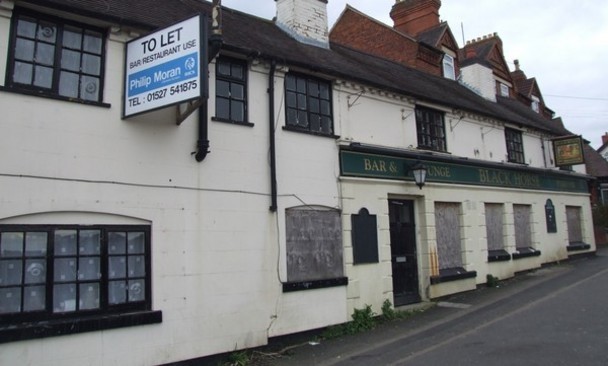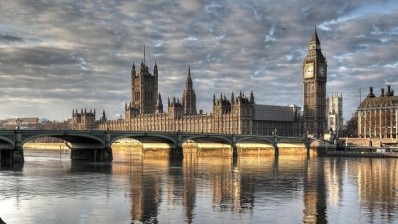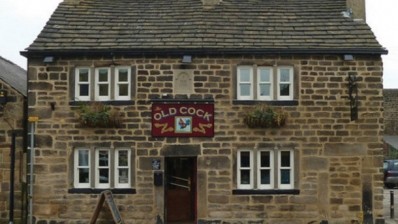The best-laid plans - what more can be done to protect pubs?

It’s one of the most fiercely debated subjects: what more do we need to do to protect our pubs?
The debate came to a head in the lead up to Christmas when the All-Party Parliamentary Save the Pub group (APPSPG) attempted to change the planning laws for pubs by passing an amendment on the proposed Neighbourhood Planning Bill.
The Save the Pub Group’s creator, Greg Mulholland MP, tabled a new clause as part of the bill, which would remove permitted development rights from pubs. These rights currently mean that no planning permission is required to change the use of a pub.
At the time, Mulholland, the Liberal Democrat MP for Leeds North West said: "The current loophole around permitted development rights leads to the predatory targeting by supermarkets of viable pubs and this must stop. Britain’s pubs are so often the heart of our communities and they deserve better protection in the planning system."
The British Beer & Pub Association (BBPA), however, opposed the new clause, saying that the change in legislation would bring with it unnecessary costs to licensees. "We are unsupportive overall of the clause because changes to the planning status of pubs does create costs. We now have 18,000-19,000 independent pubs and we want those pubs to be able to stay open, but this legislation would affect them just as much as it would BBPA members," the association’s chief executive Brigid Simmonds tells The Morning Advertiser.
Ultimate defeat
New clause nine was ultimately defeated in parliament by 274 MPs to 161, with Minister of State for Housing and Planning Gavin Barwell citing the BBPA’s opposition as a reason for voting against the amendment.
In the aftermath, Mulholland questioned the BBPA’s claim that the change would have brought about additional costs to licensees, telling parliament: "The BBPA circulated a briefing to MPs that made an entirely false claim that was then repeated by a minister at the dispatch box as a reason for not accepting an amendment to the Neighbourhood Planning Bill. Honourable members were also clearly influenced by this in the way they voted… Mr Speaker, the BBPA made an entirely false claim."
Was the BBPA’s claim false? The association’s chief executive maintains that the change in legislation would have damaged pubs because it would have put them in their own class of use for planning law. "The concern I have is if there are multiple pubs in the immediate area and one is kept open artificially, all will eventually fail.
"If you put pubs into a class on their own, which is called sui generis, then they couldn't change into anything without planning permission, which we have real concerns about."
Mulholland agrees with the BBPA that he does not want to see financially unworkable pubs remain open: "Nobody is trying to have genuinely unviable pubs just sit there," he says.
However, he remains adamant that the legislation at the moment does not give sufficient protection for successful pubs central to a community. "Anyone who suggests that pubs do currently have adequate protection from developers is being either absurd or dishonest. There are pubs still being targeted, bought and turned into other uses when they are profitable and the community wants them."
ACV protection for pubs
The asset of community value (ACV) scheme introduced as part of the Localism Act 2011 is the legislation commonly cited as giving protection to pubs valued by the community. The legislation allows communities to register their pub as an ACV and then have six months to put forward a bid to buy the pub, if the owner of the pub plans to sell.
After those six months, the owner is free to sell the pub to any bidder for any price. Mulholland believes this part of the ACV law does not sufficiently protect pubs. "It's tokenistic when a community can spend six months raising funds to buy the pub only for the developer to reject the bid," he says.
"What we need to do is look at refocusing the ACV scheme on pubs that are either under threat or have a real historical place in the community, those pubs should then be afforded the special protection to ensure that as long as there is someone who wants to run that pub, they should be enabled to do so."
The BBPA agrees that the ACV legislation is currently imperfect, but for different reasons; the association argues that the use of the legislation is muddled and can cause financial woes for licensees.
"We are where we are with the legislation and there are a lot of pubs covered as ACVs. The problem that this causes for both large pub companies and independent owners is that once a pub becomes an ACV, it can then mean that there are restrictions on the property, which can devalue it. I am aware of a case where the bank has written to a licensee saying 'Now you've got a restriction on your premises, we are going to charge you more in terms of interest rates'," Simmonds says.
"ACVs should be used when a pub is either in danger of being sold for something else, such as residential premises, or the pub is the last site in the village and it genuinely is valued by local communities."
All of this said, the Fleurets annual survey of pub prices for 2016 has shown that the percentage of pubs being sold for alternative use is on the decline; it has gone from 50% of all sales in 2015 to 37.6% of all sales in 2016.
Viable pubs are lost
Despite these positive figures, Fleurets head of pubs Simon Hall has little doubt that viable pubs are sold and converted into houses or supermarkets. He says: "On the basis there are successful sites that get converted, perhaps there is not adequate protection despite those cases being very few and far between."
Hall is right. It is rare for a month to go by and for there not to be another story of a well-loved pub being sold and converted. For that reason alone, it can be argued the legislation surrounding pub planning may be flawed.
- The legislation around ACVs is currently up for review and in the property pages of the 30 January edition of The MA, we will explore what changes could be afoot for the laws protecting the nation's pubs.







